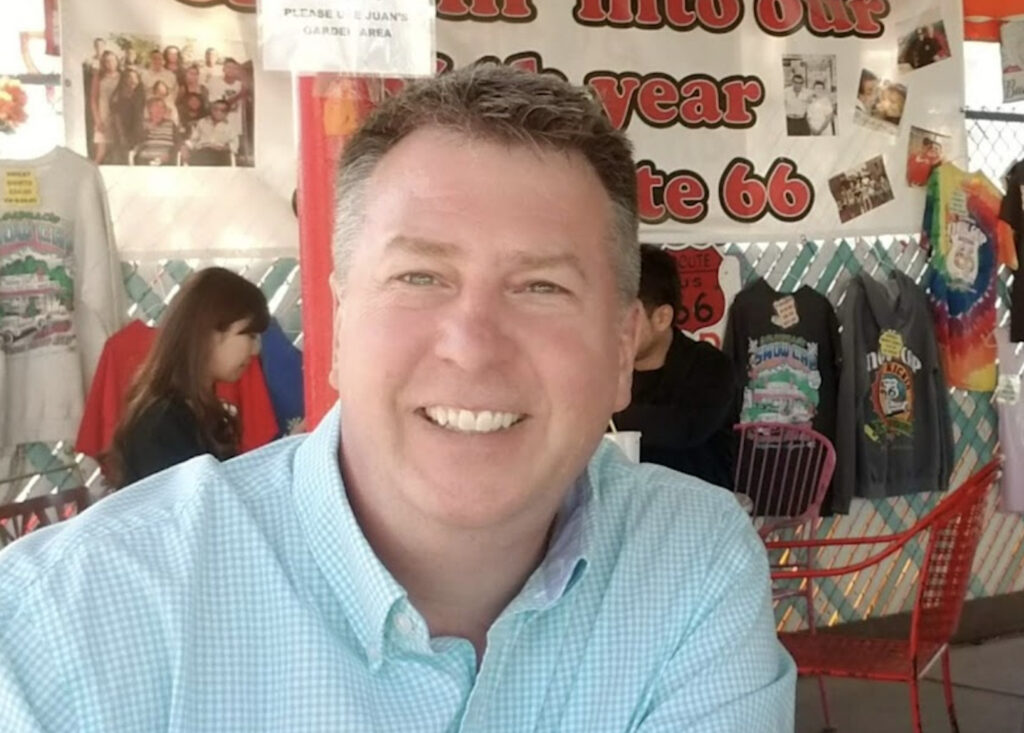Writing from the heart: The male-to-male romance of Blake Allwood
Out gay novelist Blake Allwood shares the background to his many popular works about male-to-male romance, and why it is more important now than ever to write from the heart.
Blake Allwood is one of the most prolific gay authors you might not have heard of—yet. The charming and intelligent writer has penned 10 contemporary male-to-male romances, three paranormal romances, two novellas, and he is currently releasing a three-part urban fantasy/romantic series. In total that’s an astonishing 18 books with more on the way.
We caught up with the former teacher and busy, married wordsmith to ask him about his latest work, Melody of the Heart, what he thinks of the LGBTQ book bans, and if he was willing to share a few writing secrets.
Queer Forty: What are your feelings about the bans on LGBTQ children’s books, the GOP cracking down on LGBTQ education in general, and the many bills aimed at restricting LGBTQ rights, freedom, and education?
Blake Allwood: I was an elementary school teacher back in the day and honestly banning books about LGBTQ+ people is about as ridiculous as the banning of any cultural history in our country. Diversity is the bedrock of what makes our country good and hate and discrimination is the foundation of all that’s wrong. Children are smart, smarter than people give them credit for. Especially in today’s world, kids already know about LGBTQ+ people. I can’t understand why anyone would deny them access to books that inform them about the world we live in?
Your latest novel Melody of the Heart is a beautiful and very convincing love story based on music. Where did the inspiration for this novel come from and what has music meant to you throughout your life?
Allwood: I came from the backwoods of Tennessee. My family sang all the time, in the evenings people would show up and play bluegrass music and when I got older, my mom made friends with people from Nashville, so it wasn’t uncommon for band members of various famous people to show up for what they called “music night.” I love all sorts of music, and even played in the High School and College bands when I was young. So, classical is something I know quite a lot about.
When I was imagining Melody of the Heart, I was pondering what would it be like for a classical music snob to get stuck in a backwater town in West Virginia. The discord would be a fun storyline and for two men from vastly different walks of life there would have to be a lot of compromise. Of course, I am married to a man who is my opposite in almost every way, so I really did enjoy applying some of the skills we’ve learned over our 27 years to Jonas and Orli’s relationship.
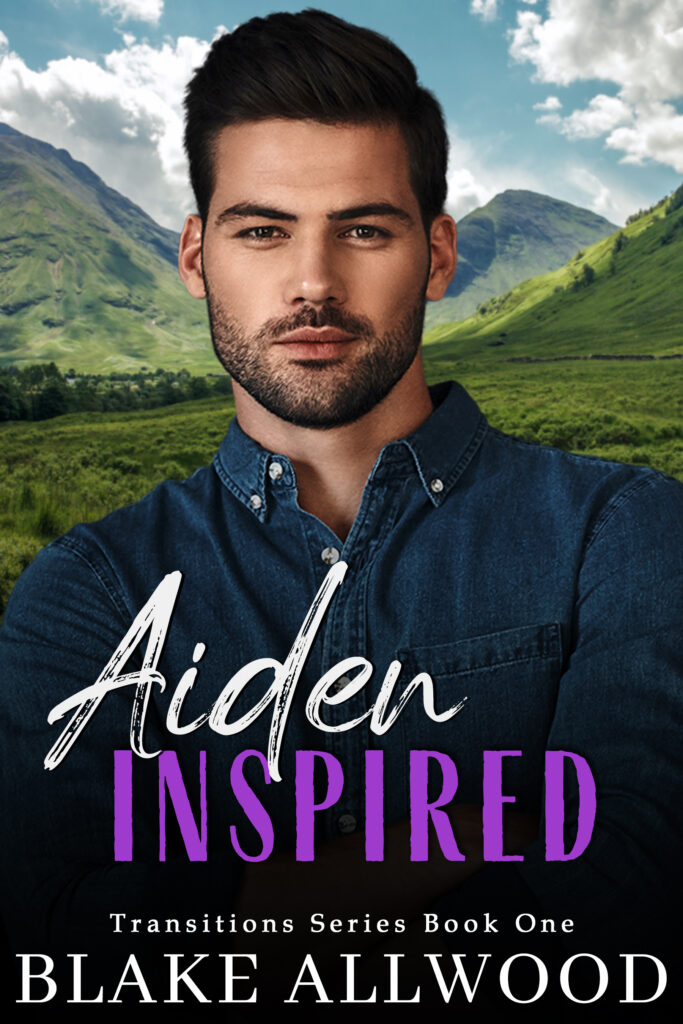
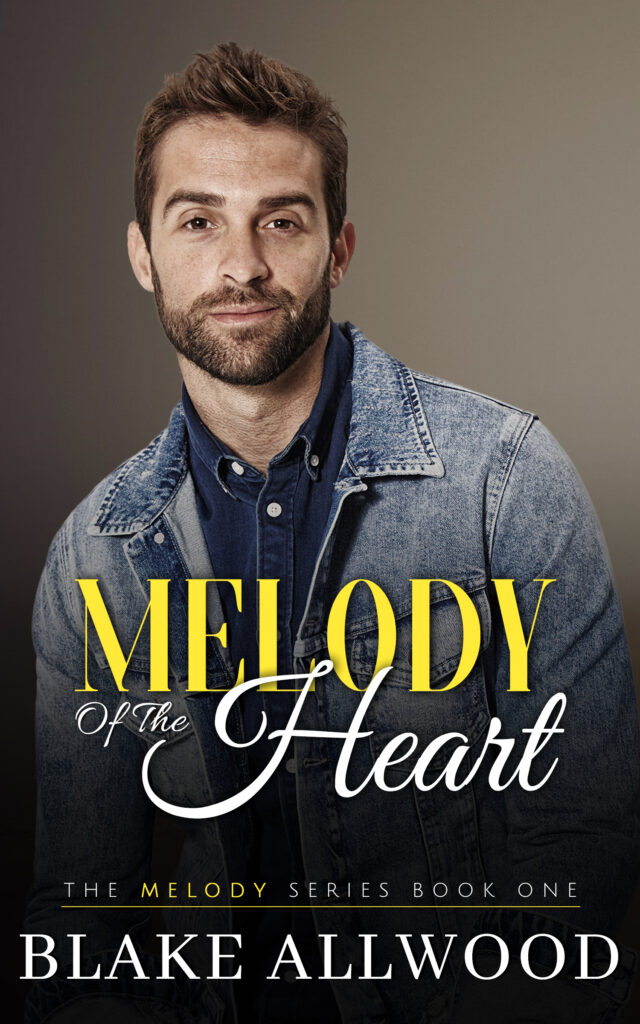
Male-Male (MM) romance seems so important to me at a time when MSM is a big focus again, after the mpox epidemic and with the GOP once more attacking same-sex rights and relationships. As a gay man why do you believe MM romance as a literary genre has value?
Allwood: We are here, we’ve always been here. Up until recently society tended to pretend like we weren’t, or made our existence against the law. When the AIDS epidemic threw us into the spotlight they weren’t able to ignore us any longer, so they painted us as deviants, which gave permission for society to look the other way as we died horrible and miserable deaths. You’re right, monkeypox was used to make us look like deviants again. I recently did a little Facebook rant after watching the news where a reporter was saying that monkeypox was mostly spread by gay men or men who have sex with men. Um, you know… when do you ever report that a disease is passed by straight men, or men who have sex with women. It’s not like we don’t have an epidemic of STDs that are. So, yeah, even today, we are being labeled and cast into a negative light. Monkeypox is being passed by men who tend to have multiple partners. This includes gay and bisexual men. But, you know I’m gay, and I’m entirely safe from the disease ’cause I don’t in fact have multiple partners. Not all gay men are the same…
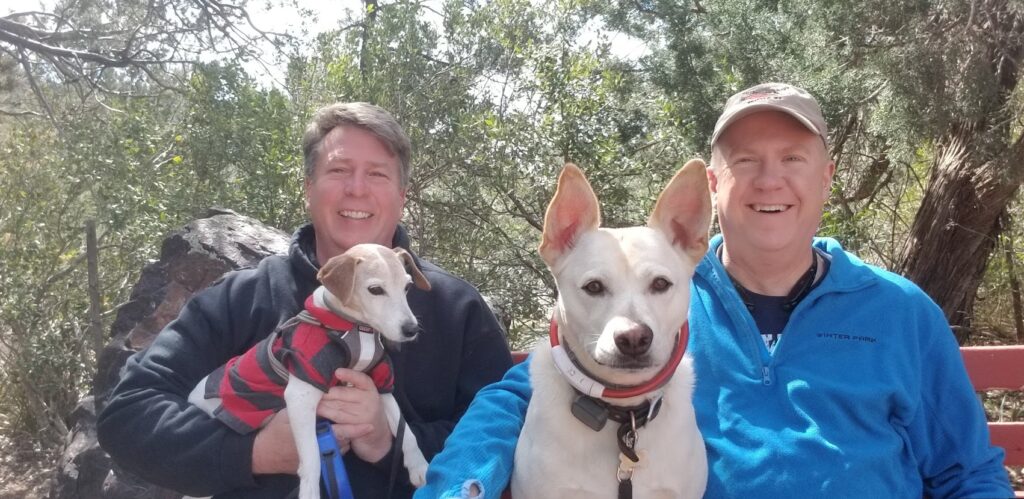
Anyway, when it comes to the value of writing about same-sex relationships, the truth is I write that more for gay men than anyone else. I just remember how hard it was back when I came out to find positive role models. I’ll never forget the feeling I had when I first saw two men dancing together. My heart all but leapt out of my body at such an intimate sight. Frankly, I’d have died and gone to heaven if I could’ve had books to read about gay men learning to love one another.
I also think there’s a lot of value in the general public reading books or watching movies about two men falling in love. It’s not really that much different than how straight couples fall in love. However, there are nuances to making a same-sex relationship work, that straight couples don’t have to deal with. I think that’s were a good book or movie can have a major impact on gay or bisexual readers.
Many people think and hope they have a novel in them; what exactly did it take for you to get those novels out of your head, onto the page and in print or online? Any obstacles on your journey and how did you overcome them?
Allwood: I’m a huge advocate for anyone willing to try. In fact, I frequently talk to people about this very subject. I think my biggest hurdle was getting past the fear that I wasn’t good enough or couldn’t write well enough to try. The thing that finally helped me get past all my hurdles was figuring out that the first draft of my stories should be written entirely for myself. I know English teachers are cringing all over the world as I say this, but yeah… if you spend too much time trying to write the perfect draft, it’s almost a guarantee you’ll never draft it.
Personally, I no longer worry about getting all the grammar, spelling or punctuation correct as I’m writing first drafts and I desperately try not to be a perfectionist. Of course, you know my first drafts are utter crap and I’m okay with that.
Once the first draft is done though, it’s all about fixing the mistakes. So, you know after that first draft, it’s no longer about me. It’s about making the manuscript something others would want to read. I try to keep this mantra in mind…
You write for yourself, you edit for others. When I finally came to this realization, my first draft just flowed out of me.
I’ll also add this bit of advice from one of my favorite romance authors Nora Roberts. Nora was asked how she’d written so many books and her comment was that there’s only one (writing) commandment, “ass in the chair.” That’s the very best advice anyone can give, you just have to sit down and do it.
How did where you grew up affect your authorial voice?
Allwood: Ha, my editors would LOVE to answer this one for you. I speak in a very distinct Southern accent and I write almost exactly like I speak. When I’m writing about a country or Southern main character, that’s fine… but when I’m writing about someone from say, New York? Well, let’s just say my editors would like to bang me over the head a few times when they are fixing my stuff.
I write a lot about gay men who live in the country. I also write quite a bit about men leaving the country and then coming home after being away for many years. In reality, I left Tennessee and never looked back, but I still hold a strong love for small towns in my heart. In a perfect world, LGBTQ people should be able to live anywhere they choose and have the same freedoms and liberties as everyone else. My hope is that my small town novels allow people to experience that, at least in a fictional way. Maybe one day that will be more reality and less fiction.
Even though this isn’t really about my authorial voice I believe my ability to write comes from an early love of books. I’m not someone you’d expect to be an avid reader or a writer. My family didn’t have a lot of money while I was growing up, I’ve got ADHD, and a form of dyslexia that made learning to read difficult. I was lucky because I had a grandmother who was always sticking books in my hands and a dad that loved the written word, so they really helped me overcome those difficulties. I also grew up miles away from kids my own age, and thanks to school libraries, I was able to read my way through days that would’ve otherwise been devastatingly lonely for a kid growing up in the sticks of Tennessee.
Literary role models or inspirations: I notice your influences are mostly women writers such as Nora Roberts. Want to elaborate on that?
Allwood: That’s an interesting point. I guess that comes from my childhood as well. I adored my dad growing up, and still do, but honestly, he just wasn’t around very much. I was however, surrounded by strong female role models who were in every way possible entertaining enough to be characters in their own books. I think having such strong women in my life as a kid is exactly why women have always been such strong influences on my life.
Regarding literary influences. I love romance. There just aren’t that many men who write romance, so naturally, a lot of my favorite authors would be women. I should also add that I love fantasy and urban fantasy, and have just released my first set of novels under my new pen name, Adam J. Ridley. Those are all fantasy or urban fantasy novels. Many of my favorite authors and literary influences in this genre are male. Terry Brooks, for example, has influenced my style significantly.
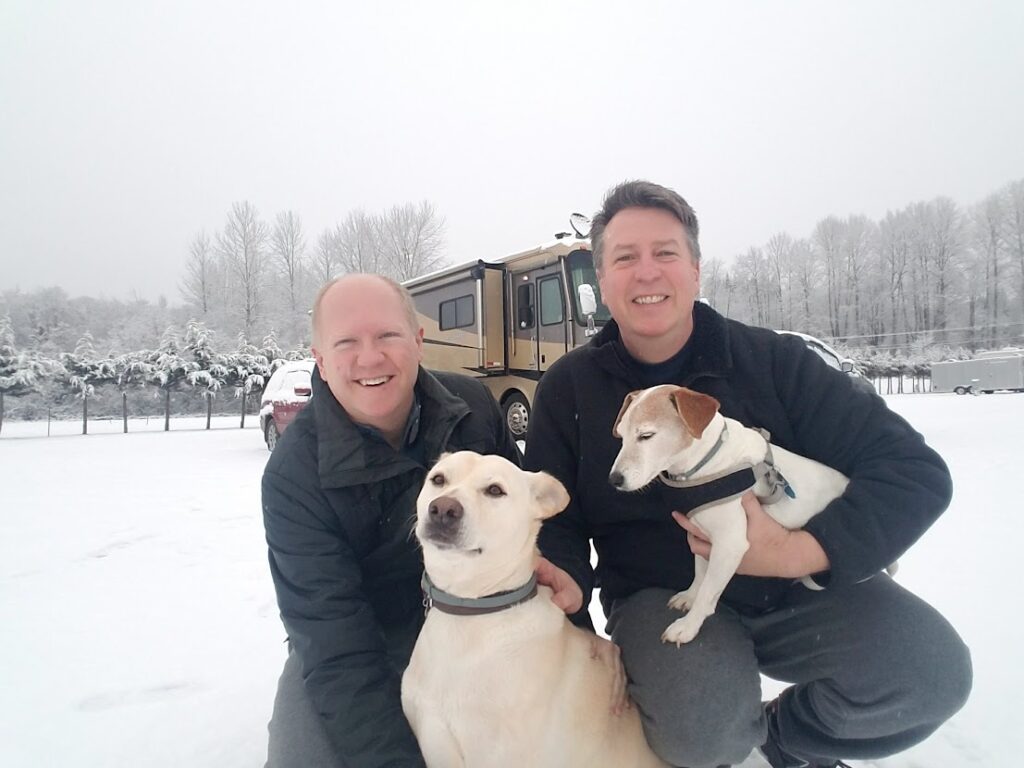
Does your husband read your books and do you ever invite constructive criticism from those close to you?
Allwood: Ugh, this is the lament of almost every author I know. Yes, the hubby has read a few of my books, and has had good feedback, but he isn’t my target demographic. Luckily, because I have a lot of author friends who get together and basically complain about our husbands, I know that it’s best not to try to force my writing on him or anyone in my family for that matter. (Laughs) Now I think I’ll stop talking so I don’t end up getting in trouble.
Since this is for Queer Forty we always like to try to address the issue of getting older and the wisdom that accrues as time goes by. Anything you’d care to share?
Allwood: Well, what’s there to say? As a fifty-one year old, I can attest to the fact that getting older sucks in a lot of ways. And not in the good ways… however, there are a lot of really good benefits to being this old too. Being more attuned to myself has allowed me to do things I wasn’t able to do as a young man, like become an author who’s published 18 books for example. My relationship has become stronger also, and I think that’s come with having more realistic expectations for my spouse.
I love what I’ve accomplished over my lifetime, but I have absolutely no interest in doing the same things I did when I was in my twenties or thirties. If there’s any wisdom to impart, it’s to let yourself go with the flow. For some of us, living a slower life fits us well and for others, they become more active and social as they move into middle and older age brackets. For me, it’s been more about not fighting life’s current and just sitting back and enjoying the scenery as I’m carried down the river. That doesn’t mean I don’t climb onto the shore from time to time, or that I accept all that life throws my way, but I certainly don’t sweat the small stuff, at least not like I used to.
Visit blakeallwood.com.

